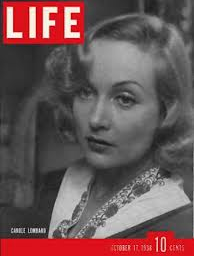
Apologies for the delayed post, readers. It’s been a rather busy few weeks and this is the first opportunity I’ve had for a blog post since my last one in late September. The Marion Davies book is in its final stages, so I’ve been spending a great deal of time putting together the proposal that will ultimately go to publishers. More about that as the time gets closer, but suffice it to say that writing a book takes a village, and I consider my village to be the best there is. For that I am very grateful.
Since my last post here, I have appeared on a podcast and in print, both for The San Francisco Chronicle. The topic was the new biopic Judy, starring Renée Zellweger, that has stirred up a lot of controversy within classic film and specifically Judy Garland circles. I discussed my feelings briefly with the Chronicle, as time permitted, but I’d like to expand upon my thoughts here, for the edification of Backlots readers and to express things for which there was no time or space on the podcast and in the paper. If you have seen the movie, please feel free to comment with your thoughts at the bottom of this post. I would love to hear from you.
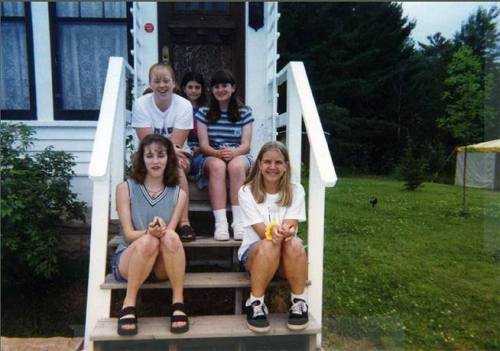
With my sister, friends and penpals on the steps of Judy Garland’s childhood home, Grand Rapids, MN, 1998.
As I’ve mentioned here before, Judy Garland was my gateway to classic film and remains a constant part of me. As I work on Marion Davies, I am keenly aware that I would not be where I am today had I not happened to pick that Judy Garland tape from the bargain bin at Borders on New Year’s Eve, 1995. Without Judy, Backlots wouldn’t exist, and I wouldn’t have made some of my most cherished friends.
Many of the Judy Garland figures I trust had already panned the movie, and were angry that Renée Zellweger took the role at all. Others praised Zellweger’s performance, saying that she completely channeled Judy Garland in 1969 and that she nailed Judy’s mannerisms, which is no easy task. I didn’t know what to think, so I decided not to think at all. I made an active decision to go into the movie with an open mind.
The backdrop to Judy is the series of concerts that Judy Garland gave at the Talk of the Town dinner club in London shortly before she died, and the scenario is based on the off-Broadway play End of the Rainbow. It is an interesting part of Judy’s life in many ways, and the movie tells the story of her life and career through flashbacks, mostly to the set of The Wizard of Oz and events that occurred around 1939.

Interacting with the audience at Talk of the Town, January 14, 1969.
As soon as the movie started, I started noticing inaccuracies. The first I noticed was the depiction of Judy’s relationship with Louis B. Mayer. The movie showed Mayer as a seemingly regular part of the Wizard of Oz set, and while executives did visit sets on rare occasions, they generally dealt solely with administrative work and left their directors and producers alone in their work. While on the set, Judy tells Mayer that she wishes she could be a normal girl, going to movies just like others her age. Even at 16, Judy Garland was operating at an intellectual level beyond that of most adults. She knew how to interact with Mayer, and it was not to tell him that she wished she could go to the movies like other girls her age. It is a nuance, but an important one.
In general, Judy’s staggering intelligence is missing from the movie. Friends estimated that her IQ surpassed 160–she learned astoundingly quickly and was capable of performing complex dance routines after seeing them once. She found rehearsal dull and unnecessary, and got very impatient when she was needed to rehearse anything beyond a single take. Her dislike of rehearsal is indeed shown in the movie, which I appreciated, but the reason for it–the speed and depth of her learning–was not.
This number from Summer Stock (1950) was filmed in one take after Gene Kelly had shown Judy the steps once.
At one moment, Zellweger’s Judy says that she never had time to learn to do anything but sing. Judy was, in fact, a very accomplished pianist, having learned at a young age from her mother. She played at such a high level that pianist friends who heard her play told her that she should give professional concerts. “No,” Judy would reply, “this is just for me.” She feared that if word of her skill at the piano got out, it would be exploited like the rest of her talents. She was also deeply political with a strong moral compass, and as a young person was an enthusiastic supporter of Franklin D. Roosevelt and the New Deal. She was a member of the Committee for the First Amendment, protesting the blacklisting of the Hollywood Ten, and later became involved in the planning of the March on Washington and the election of John F. Kennedy.

The movie does depict the harrowing sexual abuse that Judy suffered at the hands of Louis B. Mayer. It is dealt with quickly, glossed over almost shamefully, and it is not accurate. This bothered me to no end. It would have been better, in my mind, not to show it at all, rather than gloss over it and put it in the wrong place at the wrong time. Judy wrote about the abuse in her unpublished autobiographical manuscript, which is readily available to the public, and inaccuracy in this domain is inexcusable. It was too important to Judy’s self-image, her psychological problems, and the course of the rest of her life to be dealt with so nonchalantly. The moment could have served as an important link for modern-day survivors, but instead they treated it lazily, as if the moment were required but not desired.
The main action takes place in 1969 and at that point, Judy’s minor children, Lorna and Joe Luft, were teenagers (Lorna was born in 1952, Joe in 1955). In the movie the children are shown far too young, which contributes to a narrative that was not the real one. In general, the timeline was way off, a jarring time bend for those of us who know it. Liza Minnelli was shown at a Los Angeles party early in the movie, but she was not in Los Angeles in 1969, having moved to New York years earlier to start her own career. Nor did she ever call her mother “Mom,” as we hear in the movie. Throughout their lives, all of Judy’s children called her “Mama,” a name by which they all still refer to their mother.

But for me, the most egregious inaccuracy had to do with the portrayal of Judy herself. The movie showed her wallowing in self-pity, going onstage drunk, and being booed offstage by the audience. Never did Judy bare her soul in interviews or feel sorry for herself, the way they showed onscreen. The closest she came was when she was interviewed by Barbara Walters in 1967, describing her difficulties with her own mother. She did have a few disastrous concerts, notably in Melbourne and Hong Kong, but the Talk of the Town concerts that provide the backdrop for the movie were nothing of the kind. Judy loved London, and London loved her.
To say Judy had an uproarious sense of humor would be an exercise in understatement. Lucille Ball, denying her own comedic gifts, once said “I was never funny. You know who was truly funny? Judy Garland. Judy Garland was funny. She made me look like a mortician.” Judy’s quickness of wit was legendary in Hollywood, and she was an unmatched storyteller. Her tall tales left audiences laughing until they cried.
None of this was shown in the movie. There were a few moments where hints of Judy’s sense of humor came through, but they were only hints. Nothing made the audience laugh out loud or applaud enthusiastically, the way they did when Judy told stories, and it was one of the aspects of the movie that I missed the most.
In regard to Zellweger’s performance, it was clear to me that she had done her research. She made an effort to channel Judy’s mannerisms, which are incredibly difficult to do, and did them to the best of her ability. In concerts and on her TV show, Judy would frequently toy with the microphone cord, tossing it over her shoulder and making it a sort of prop for her performance. Zellweger did this, but didn’t quite do it right, nor did her Garland-esque movements evoke the vibrance and life that Judy’s did. Judy moved with her soul–becoming one with the song as her spirit succumbs to the beauty and power of the music. We the audience feel this with her as she moves, an almost indescribable experience.
Zellweger, by contrast, seems to be going through the motions. She knows the Judy Garland signature moves–the arm over the head, the position of the hand as she holds the microphone–but the life in it is missing.
This is perhaps the best way I can sum up Judy–the life in it is missing. Instead of painting a three-dimensional portrait of a complex woman, it chooses to rely on cursory, surface level research and tells incomplete stories or complete untruths. Renée Zellweger did the best she could, but I couldn’t help but mourn for what could have been.



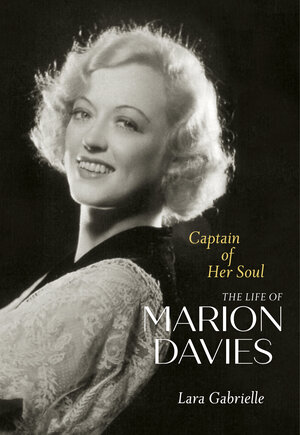


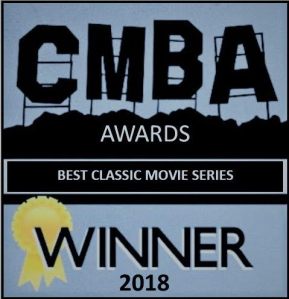


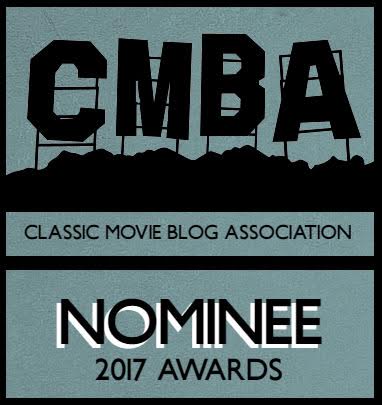

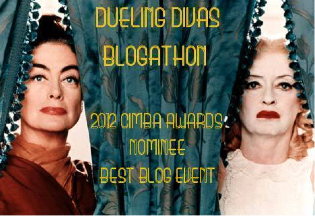







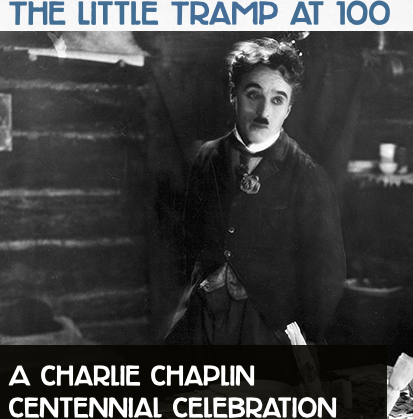
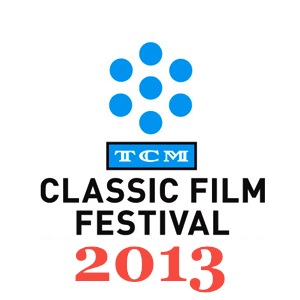
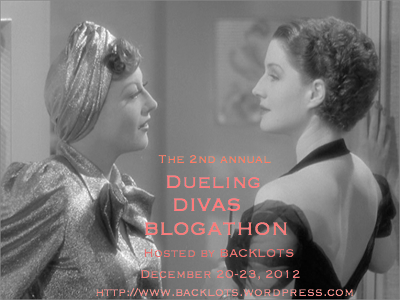


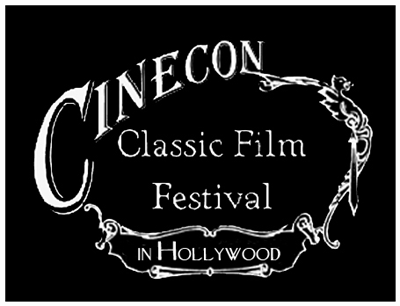




_03.jpg)
